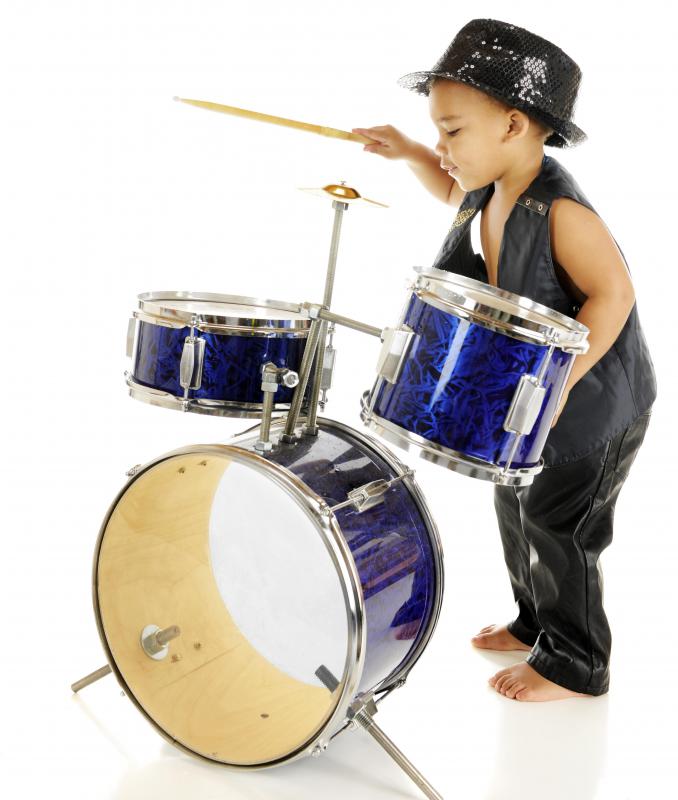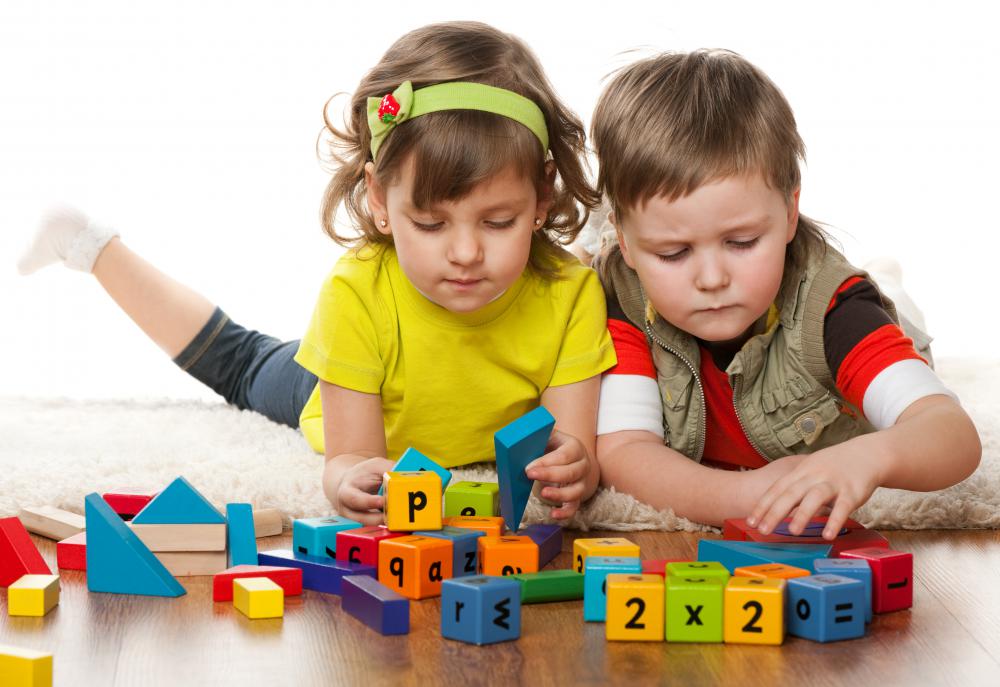At WiseGEEK, we're committed to delivering accurate, trustworthy information. Our expert-authored content is rigorously fact-checked and sourced from credible authorities. Discover how we uphold the highest standards in providing you with reliable knowledge.
What Are the Benefits of Music Therapy for Children?
Music therapy for children is often employed by teachers, parents and counselors to improve development, particularly in young children. One specific way in which it can benefit children is by teaching facts while also improving math and language skills. Kids who dance to music or play instruments also often improve their motor skills by doing so, no matter what age they are. In addition, music can help kids make emotional bonds with others, which is why it is usually considered particularly helpful when treating children who have trouble communicating.
One of the most common benefits of music therapy is the ability to teach information using songs. For example, kids often learn the alphabet, numbers or how to spell their name using short, catchy songs that they can easily remember. Just listening to music also is considered beneficial for the developing brain, because both sides of the brain usually are necessary for this task. This is why music therapy for children is often said to improve language and even math skills. This is especially true when kids learn to read music, because this skill requires them to integrate math and language into one activity.

Another benefit that can be derived from music therapy for children is the improvement of motor skills. Infants and older children often like to dance, moving their body the minute they hear music of any kind. This helps them learn gross motor skills as they move to different rhythms, depending on whether the beat is fast or slow. Another form of music therapy for children is teaching them to play instruments, which helps them learn fine motor skills. Even young children can learn to play the drums, while older kids can usually be taught to play the piano, violin or other instruments that require more hand-eye coordination.

Music also can help people connect emotionally to others, which is why it often is used when treating autism, because some autistic children respond to music when they won't respond to other stimuli. Similarly, adults often rely on music to persuade children to share their emotions with them, because many people of all ages identify with certain songs and are prompted to share their feelings about them when asked. Parents and teachers can use music therapy for children to give one-on-one attention to kids, because they can sing, dance and play instruments together. The eye contact, touch and laughter that frequently are shared among people who make or listen to music together can often create a bond.
AS FEATURED ON:
AS FEATURED ON:













Discuss this Article
Post your comments